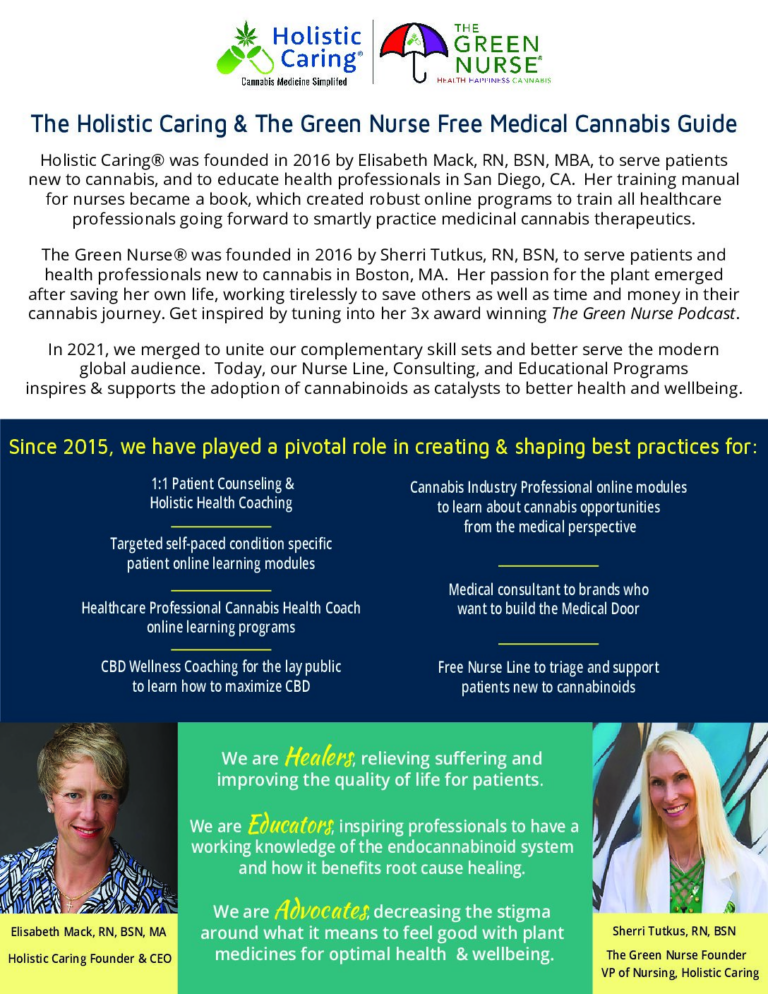Dear Green Nurse,
Could you share some insights on the benefits of CBD for sleep and why its effectiveness may vary? Additionally, could you explain how CBD can be used alongside other sleep supplements and offer guidance on determining the right dosage for using CBD?
Sincerely,
Sleepless in Seattle
Dear Sleepless,
The foundation of a restful night’s sleep lies in falling asleep effortlessly, staying asleep throughout the night, and waking up feeling refreshed and energized to live your best life. A good night’s sleep is essential for overall health and well-being (National Sleep Foundation, 2020). However, before turning to medications, sleep aids, or cannabinoids, it’s critical to optimize natural sleep hygiene habits. The goal should always be to rely on the least amount of interventions while still achieving deep, restorative sleep (Walker, 2017).
This blog post explores science-backed sleep hygiene strategies, the benefits of morning sunlight exposure, and how cannabinoids, nutraceuticals, and holistic practices can support a natural sleep cycle when needed.
For personalized recommendations, feel free to complete our sleep intake questionnaire—a green nurse will review your responses and provide tailored suggestions to help you make choices that are best for you naturally.
Sincerely,
The Green Nurse
Optimizing Sleep Naturally: The Power of Sleep Hygiene, CBD & Supplements
Step ONE – Mastering Sleep Hygiene
- Maintain a Regular Sleep Schedule
- Keeping a consistent sleep schedule helps regulate the body’s internal clock, improving overall sleep quality (American Academy of Sleep Medicine, 2021).
- Go to bed and wake up at the same time daily, even on weekends.
- Avoid naps, especially after 3 PM, as they can disrupt nighttime sleep (National Institutes of Health, 2022).
- Morning Sunlight: A Key to Better Sleep! Morning sunlight plays a critical role in regulating your sleep-wake cycle through its impact on your circadian rhythm (Riemersma-van der Lek et al., 2008). Here’s how it helps:
- Regulates Circadian Rhythm: Provides a strong signal to the brain’s suprachiasmatic nucleus (SCN), synchronizing your body clock with the natural day-night cycle (Figueiro & Rea, 2010).
- Boosts Melatonin Regulation: Morning light suppresses melatonin during the day, aligning production to increase in the evening for easier sleep onset (Pandi-Perumal et al., 2005).
- Enhances Serotonin Production: Sunlight increases serotonin, which improves mood and supports a healthy sleep cycle (Babson et al., 2017).
- Improves Sleep Quality: More natural light exposure, particularly in the morning, leads to better sleep quality and fewer nighttime awakenings (Shannon et al., 2019).
- Reduces Stress and Improves Mood: Natural light exposure can lower cortisol levels, contributing to more restful sleep (Zanger & Schwab, 2013).
- Tips to Maximize Benefits of Morning Sunlight:
- Spend 15-30 minutes outdoors within an hour of waking up (National Institutes of Health, 2022).
- Avoid sunglasses initially to allow natural light exposure to your eyes.
- Combine sunlight exposure with light movement, like walking, to boost serotonin levels (Harvard Medical School, 2020).
- Create a Relaxing Evening Routine
- A relaxing bedtime routine can help ease the transition from wakefulness to sleep (Centers for Disease Control and Prevention, 2021).
- Practice relaxation techniques such as deep breathing, meditation, or visualization (Harvard Medical School, 2020).
- Take a warm shower or bath 90 minutes before bed—cooling afterward triggers sleepiness (Moorcroft, 2019).
- Limit screen time before bed as blue light can suppress melatonin production (Chang et al., 2015).
- Have a light snack if needed but avoid heavy meals before bed (National Sleep Foundation, 2020).
- Optimize Your Sleep Environment
- A bedroom that is cool, dark, and quiet promotes better sleep (American Sleep Association, 2021).
- Use blackout curtains, white noise machines, or earplugs if necessary.
- Remove electronics from the bedroom to reduce distractions (National Institutes of Health, 2022).
- Reserve the bed for sleep and intimacy only, avoiding work, eating, or watching TV in bed (American Academy of Sleep Medicine, 2021).
- Preparing Your Mind and Body for Sleep
- Reduce stress before bed by writing down worries in a journal (Walker, 2017). At the end of the day, take a moment to reflect and write down three things you’re grateful for. It’s a simple yet powerful way to cultivate a positive mindset for sleep.
- Avoid emotional conversations close to bedtime (American Academy of Sleep Medicine, 2021).
- Challenge negative sleep thoughts—occasional poor sleep won’t ruin your health (Centers for Disease Control and Prevention, 2021).
- Avoid caffeine after lunch, limit alcohol, and exercise regularly but not within 6 hours of bedtime (National Sleep Foundation, 2020).
Step TWO – When to Consider CBD & Natural Sleep Aids
While sleep hygiene is crucial, it may not always be enough to address persistent sleep issues. In such cases, natural supplements like CBD, melatonin, and valerian root can provide additional support. However, these remedies should be viewed as complementary rather than first-line solutions (Babson et al., 2017).
Quality sleep is vital for maintaining overall health and well-being, yet millions grapple with insomnia, restless nights, and disrupted circadian rhythms. As interest in cannabidiol (CBD) grows, many are asking: Can CBD truly improve sleep? How does it interact with the body’s endocannabinoid system (ECS)? And what factors determine its effectiveness?
The Endocannabinoid System (ECS) and Sleep – The ECS is a complex cell-signaling system that plays a critical role in regulating sleep, mood, pain, and appetite. It is composed of endocannabinoids (like anandamide and 2-AG), cannabinoid receptors (CB1 and CB2), and enzymes that synthesize and degrade these compounds.
- CB1 Receptors: Found primarily in the central nervous system, CB1 receptors help regulate sleep-wake cycles and circadian rhythms.
- CB2 Receptors: More prevalent in the peripheral nervous system, CB2 receptors influence inflammation and neuroprotection, indirectly affecting sleep quality.
How Cannabinoids Affect Sleep:
- THC (Tetrahydrocannabinol): Binds directly to CB1 receptors and may have sedative effects. However, high doses can reduce REM sleep, impacting overall sleep architecture. Like CBD, THC is dose dependent.
- CBD (Cannabidiol): Modulates ECS activity indirectly, reducing anxiety—one of the key factors in sleep regulation. CBD interacts with over 70 targets in the body, influencing the broader endocannabinoidome. Studies suggest CBD can improve sleep quality, but its effects are dose-dependent.
CBD and Insomnia: Why Are Results Mixed?
Research on CBD’s effectiveness for insomnia varies due to factors like dosage, the presence of other cannabinoids, and individual responses.
- Dosage and Biphasic Effects – CBD follows a biphasic dose-response pattern:
- Low doses may be alerting or stimulating.
- Higher doses tend to have sedative effects.
- Full-Spectrum vs. Isolate (The Entourage Effect)
- Full-Spectrum CBD: Contains trace amounts of THC and other cannabinoids, potentially enhancing sleep benefits through synergy known as the entourage effect.
- CBD Isolate: Lacks other cannabinoids, possibly making it less effective.
- THC’s Role: While THC is often recognized for its sedative properties, it can sometimes trigger anxiety or disrupt sleep in certain individuals. However, combining cannabinoids like CBD, CBN, and THC often produces more effective results than using THC alone. This synergy creates a more balanced and beneficial experience, promoting both REM cycles and restorative sleep.
- Individual Differences
- Genetic and Metabolic Variability: People metabolize cannabinoids differently, leading to varied responses.
- Underlying Health Conditions: Conditions like anxiety, chronic pain, circadian rhythm disorders, and sleep issues such as apnea or restless leg syndrome can all impact how effectively CBD supports sleep.
Potential Interactions Between CBD and Other Sleep Aids – CBD is metabolized by the cytochrome P450 enzyme system, which is also responsible for processing many drugs and supplements. This raises concerns about possible interactions.
Common Sleep Aids and CBD Interactions:
- Melatonin, Valerian Root, or Other Sedatives: Combining these with CBD may enhance drowsiness or lead to over-sedation.
- Metabolic Interference: CBD can alter how these substances are metabolized, potentially affecting their efficacy and side effects.
How to Determine the Right CBD Dose for Sleep
CBD dosage for sleep isn’t one-size-fits-all. Its effectiveness depends on various factors, such as individual metabolism, underlying medical conditions, and the interaction with other cannabinoids being used in a formula.
- General Dosage Guidelines:
Start Low and Go Slow: Begin with 10–25 mg and gradually increase while monitoring effects. Try a full-spectrum CBD hemp oil, like Bloom Hemp Calming Tincture, which contains trace amounts of THC, minor cannabinoids such as CBN and soothing terpenes for a calming effect to promote the relaxation response for a good night sleep. - Studies Suggest: Some patients experience improved sleep with doses ranging from 25 to 100 mg, divided throughout the day. In certain cases, higher doses may be necessary, depending on the condition and individual needs.
- Real world evidence: Our patients at Holistic Caring and The Green Nurse and thoso we have care for at Bloom Hemp with our free emailed care plans have experienced remarkable improvements in their sleep quality by using a combination of products, including tinctures, topicals, and edibles such as capsules or gummies. These solutions feature carefully crafted cannabinoid blends—CBD, CBN, and THC—designed in precise ratios to maximize their effectiveness.
CBD and Melatonin: A Powerful Sleep Combination?
Melatonin and CBD both support sleep, but through different mechanisms:
- Melatonin: A natural hormone that regulates circadian rhythms and signals when it’s time to sleep.
- CBD: Reduces anxiety, alleviates pain, and combats stress-related sleep disturbances and activates over 70 receptors throughout the body.
Potential Benefits of Combining CBD and Melatonin:
- Faster Sleep Onset: Helps users fall asleep more quickly.
- Comprehensive Sleep Support: Addresses sleep through multiple biological pathways.
- Reduced Nighttime Awakenings: Some users report fewer interruptions during the night.
This combination may not work the same for everyone, as some individuals report experiencing excessive drowsiness or morning grogginess. It’s important to proceed with caution and consult a healthcare professional before incorporating these supplements into your routine. Many of our patients are discovering the benefits of Bloom Hemp Sleep Gummies, with excellent results as they enjoy more restful nights. These gummies are thoughtfully formulated to be THC-free, vegan-friendly, and irresistibly delicious. Each gummy contains 25mg of premium CBD, expertly combined with natural sleep-supporting ingredients like L-Theanine, passionflower, and 3mg of melatonin. This balanced blend is perfect for those seeking the sleep-enhancing benefits of CBD without THC.
Final Thoughts and Conclusion: Focus on Sleep Hygiene First and then add CBD.
CBD offers a promising, natural approach to enhancing sleep, particularly for those dealing with anxiety-related insomnia. Its effectiveness, however, depends on factors such as dosage, cannabinoid blend, and individual physiology. While research is still evolving, many users have reported positive outcomes with full-spectrum CBD, especially when paired with complementary compounds like CBN or melatonin.
That said, the foundation of lasting sleep improvement lies in prioritizing good sleep hygiene and healthy lifestyle habits. CBD or other supplements should serve as occasional tools, not substitutes, for a well-rounded approach to sleep wellness (National Sleep Foundation, 2020).
For those interested in exploring CBD for sleep, products like the Bloom Hemp CBD Sleep Bundle offer a carefully crafted mix of cannabinoids and botanical extracts in different dosing formats designed to optimize rest. Start your day with a full-spectrum hemp softgel to help regulate stress and set the stage for restful sleep later in the evening. After dinner, the Calming Tincture offers support in falling asleep, while the Bloom Hemp Sleep gummy provides lasting CBD benefits throughout the night for a deeper, more restorative rest.
At Holistic Caring & The Green Nurse and Bloom Hemp CBD, we take a personalized approach to wellness. Our tools, like the intake form or sleep questionnaire, allow us to understand your unique needs. A Registered Nurse will review your responses and provide tailored guidance along with product recommendations designed specifically for you.
References
American Academy of Sleep Medicine. (2021). Healthy sleep habits. Retrieved from https://aasm.org/
American Sleep Association. (2021). How to improve sleep hygiene. Retrieved from https://www.sleepassociation.org/
Babson, K. A., Sottile, J., & Morabito, D. (2017). Cannabis, cannabinoids, and sleep: a review of the literature. Current Psychiatry Reports, 19(4), 23. https://doi.org/10.1007/s11920-017-0775-9
Cannakeys. (n.d.). THC & CBD for insomnia and sleep disorders. Retrieved from https://www.cannakeys.com/resources/thc-cbd-for-insomnia-sleep-disorders
Centers for Disease Control and Prevention. (2021). Sleep and sleep disorders. Retrieved from https://www.cdc.gov/sleep/index.html
Chang, A. M., Aeschbach, D., Duffy, J. F., & Czeisler, C. A. (2015). Evening use of light-emitting eReaders negatively affects sleep, circadian timing, and next-morning alertness.
Proceedings of the National Academy of Sciences, 112(4), 1232-1237. https://doi.org/10.1073/pnas.1418490112
Figueiro, M. G., & Rea, M. S. (2010). Lack of short-wavelength light during the school day delays dim light melatonin onset (DLMO) in middle school students. Neuro Endocrinology Letters, 31(1), 92–96.
Harvard Medical School. (2020). Healthy sleep. Retrieved from https://www.health.harvard.edu/topics/sleep
Moorcroft, W. H. (2019). Understanding Sleep and Dreaming (2nd ed.). Springer. https://doi.org/10.1007/978-3-030-21645-4
National Institutes of Health. (2022). Your guide to healthy sleep. Retrieved from https://www.nhlbi.nih.gov/files/docs/public/sleep/healthy_sleep.pdf
National Sleep Foundation. (2020). Sleep guidelines and help. Retrieved from https://www.sleepfoundation.org/
Pandi-Perumal, S. R., Zisapel, N., Srinivasan, V., & Cardinali, D. P. (2005). Melatonin and sleep in an aging population. Experimental Gerontology, 40(12), 911–925. https://doi.org/10.1016/j.exger.2005.08.009
Riemersma-van der Lek, R. F., Swaab, D. F., Twisk, J., Hol, E. M., Hoogendijk, W. J., & van Someren, E. J. (2008). Effect of bright light and melatonin on cognitive and noncognitive function in elderly residents of group care facilities: a randomized controlled trial. JAMA, 299(22), 2642-2655. https://doi.org/10.1001/jama.299.22.2642
Shannon, S., Lewis, N., Lee, H., & Hughes, S. (2019). Cannabidiol in anxiety and sleep: A large case series. The Permanente Journal, 23, 18-041. https://doi.org/10.7812/TPP/18-041
Walker, M. P. (2017). Why We Sleep: Unlocking the Power of Sleep and Dreams. Scribner.
Zanger, U. M., & Schwab, M. (2013). Cytochrome P450 enzymes in drug metabolism: Regulation of gene expression, enzyme activities, and impact of genetic variation. Pharmacology & Therapeutics, 138(1), 103–141. https://doi.org/10.1016/j.pharmthera.2012.12.007









